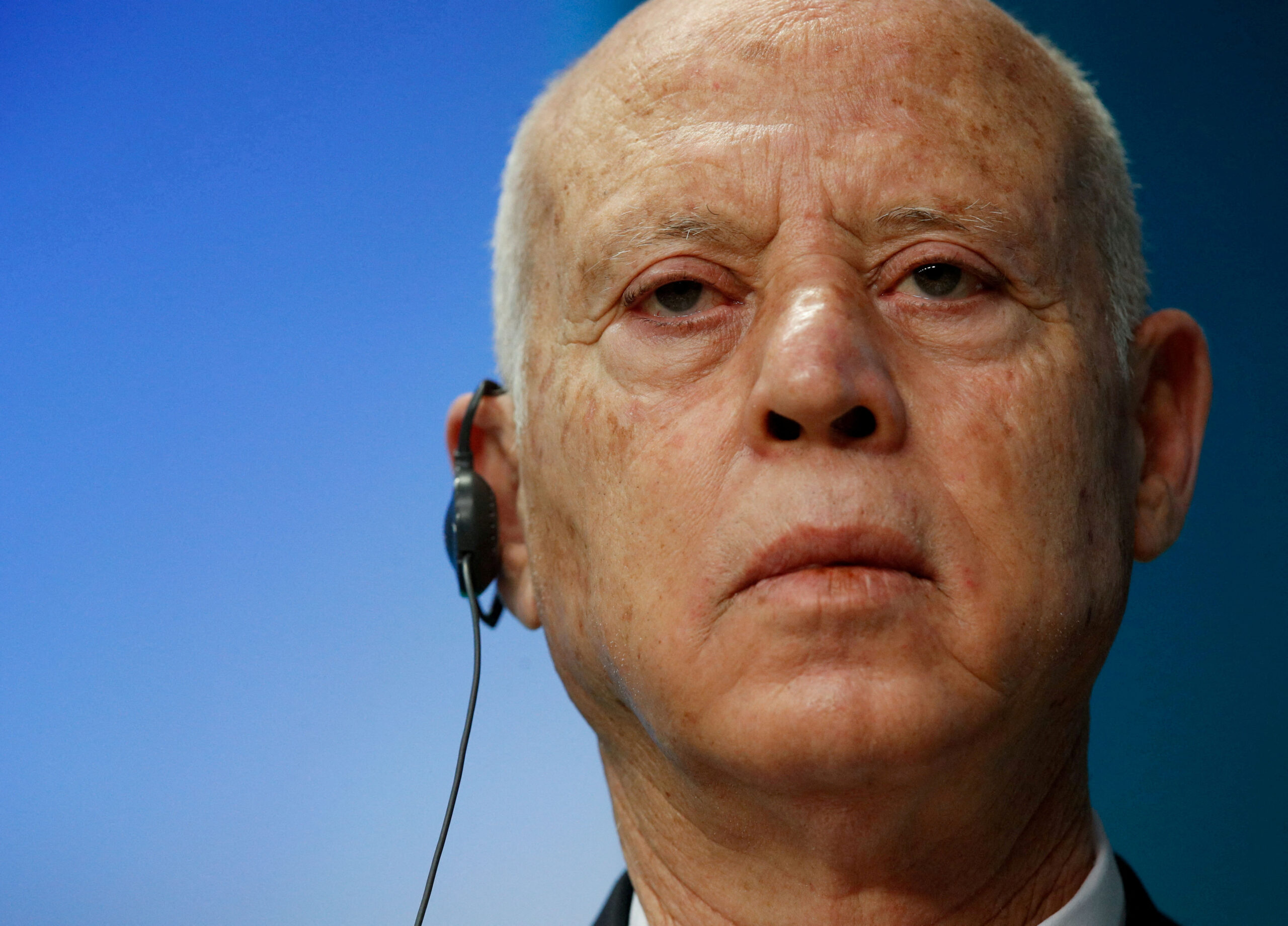TUNIS (Reuters) – A Tunisian judge has barred radio and television news programmes from covering the cases of prominent opposition figures accused of conspiring against state security in recent months, official news agency TAP said on Saturday.
The order fuels concerns over rights in Tunisia since President Kais Saied seized extra powers in 2021, moving to rule by decree and then assuming authority over the judiciary.
“The investigating judge of office 36 of the anti-terrorism branch issues a decision banning media coverage of the two cases of conspiring against state security,” the court’s spokesperson Hanan el-Qadas told TAP.
TAP later quoted Qadas as saying the order only concerned “audio-visual media” and was intended to keep details of the cases confidential and protect the personal data of people involved.
READ MORE: Tunisia will not be Europe’s border guard, president says
Reuters was unable to immediately reach the spokesperson.
Judges have detained or opened investigations into more than 20 political, judicial, media and business figures with opposition ties over recent months, accusing some of plotting against state security.
The main opposition parties have decried the arrests as politically motivated and rights groups have urged Tunisian authorities to free those detained.
Neither the Interior Ministry nor the Justice Ministry have publicly commented on the arrests so far.
President Saied has described the detainees as terrorists, criminals and traitors, saying judges who free them would be considered as having abetted them.
READ MORE: Analysis-North Africa backslides toward swirling debt troubles
The opposition accuses Saied of a coup for shutting down parliament in 2021, ruling by decree and writing a new constitution that was passed last year with a low turnout to give him nearly unchecked powers.
They say he has dismantled the democratic system introduced after a 2011 revolution that also brought one of the freest media landscapes of any Arab country, in which the press regularly reported criticism of the government.
Saied has denied staging a coup, saying his actions were legal and needed to save Tunisia from chaos and corruption.


